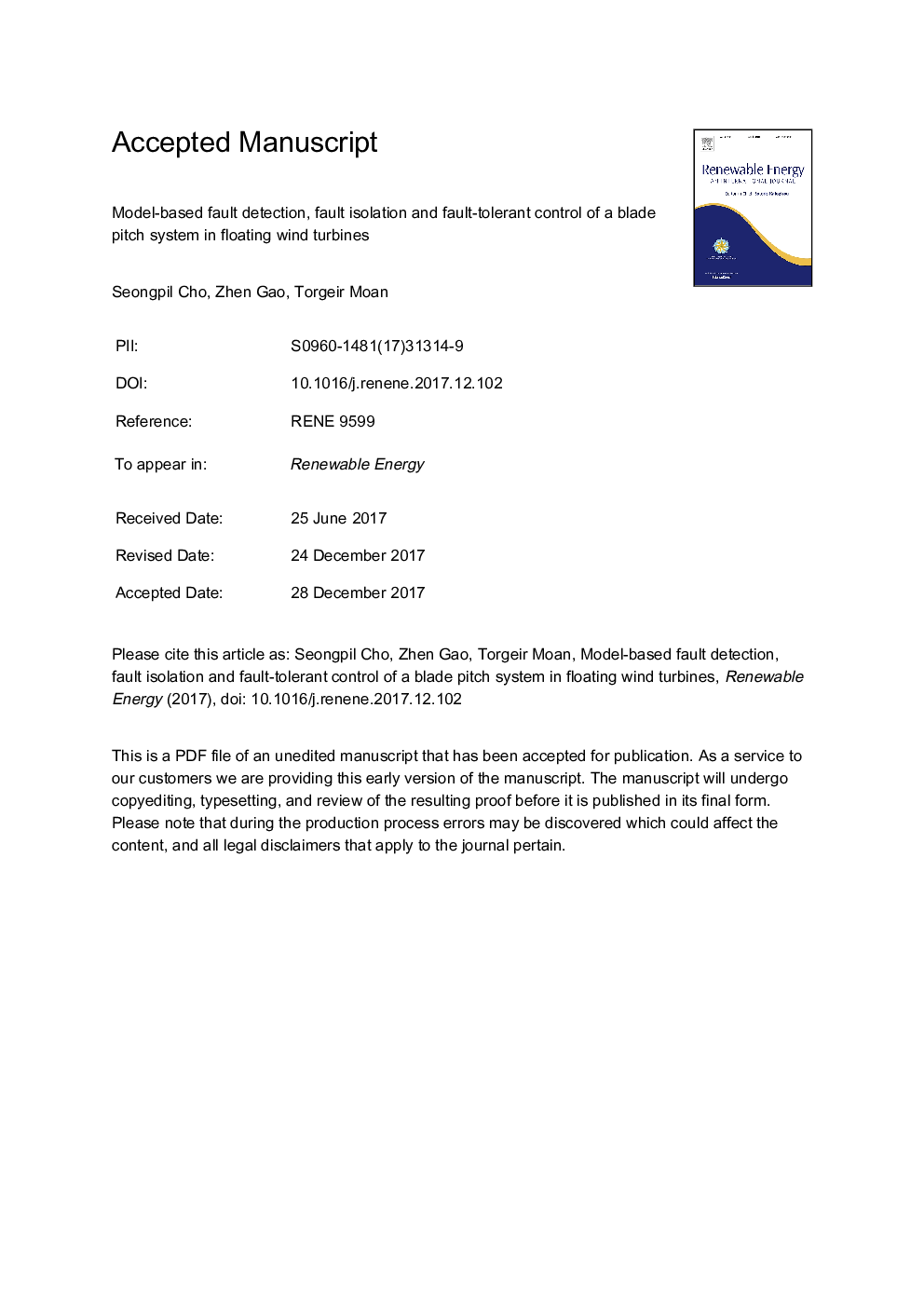| Article ID | Journal | Published Year | Pages | File Type |
|---|---|---|---|---|
| 6764828 | Renewable Energy | 2018 | 40 Pages |
Abstract
This paper presents model-based fault detection, fault isolation, and fault-tolerant control schemes focused on blade pitch systems in floating wind turbines. Fault detection, isolation, and accommodation techniques are required to achieve high power capture efficiency and structural reliability in floating wind turbines. Faults in blade pitch systems should be detected at an early stage to prevent catastrophic failures. To detect faults of the blade pitch systems, a Kalman filter is designed to estimate the blade pitch angle of the system. The fault isolation algorithm is based on inference methods and capable of determining the fault type, location, magnitude and time. The fault-tolerant controller based on a reconfiguration block with a virtual sensor and shutdown mode controls the floating wind turbine to avoid unexpected external loads. The proposed methods are demonstrated in case studies with stochastic wind and wave conditions that considering different types of faults, such as biases and fixed outputs in pitch sensors and stuck pitch actuators. The simulation results show that the proposed methods can detect and isolate multiple faults effectively at an early stage. Additionally, the effectiveness of the fault-tolerant control systems for different load cases for single and multiple fault conditions is verified by numerical simulations.
Keywords
Related Topics
Physical Sciences and Engineering
Energy
Renewable Energy, Sustainability and the Environment
Authors
Seongpil Cho, Zhen Gao, Torgeir Moan,
